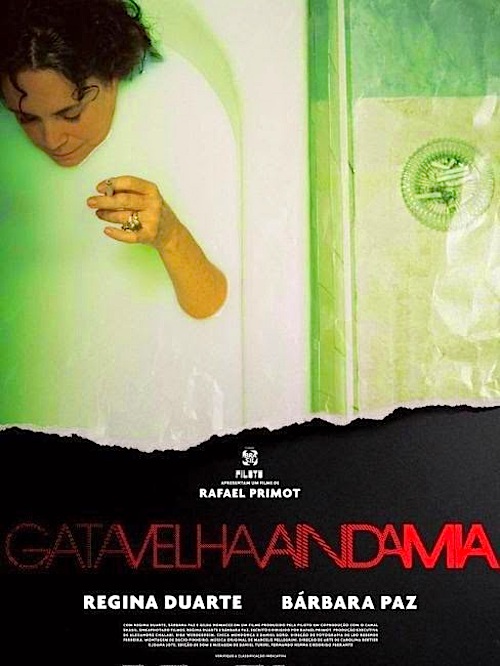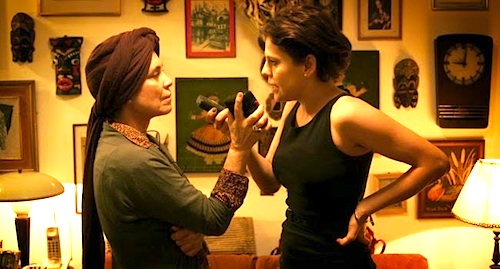 By Joe Bendel. Barbara Polk was once the Susan Sontag of Brazil, but it has been a long time since her last book. It is fair to say she has had issues during the intervening time. Viewers will learn them in dramatic detail when Polk reluctantly sits for an interview with a journalist neighbor in Rafael Primot’s Never Too Old to Meow, which screened during the 2014 Brazilian Film Festival in New York.
By Joe Bendel. Barbara Polk was once the Susan Sontag of Brazil, but it has been a long time since her last book. It is fair to say she has had issues during the intervening time. Viewers will learn them in dramatic detail when Polk reluctantly sits for an interview with a journalist neighbor in Rafael Primot’s Never Too Old to Meow, which screened during the 2014 Brazilian Film Festival in New York.
Polk is still a recognizable name in literary circles, but she no longer has the same cache as a public intellectual. With the expected publication of a long awaited follow-up novel looming, she agrees to an interview for a hipster magazine. Like a bitter old Lillian Hellman, Polk seems to do everything she can to make Carol uncomfortable. There is a reason for her icy hospitality. The two women are linked in extremely intimate ways. Let’s just say Polk used to live in the penthouse instead of Carol.
Nonetheless, Polk starts to warm to her guileless guest as the vino flows. Perhaps they can form some sort of alliance as fellow women of letters. And then the film turns into a completely different animal—one that makes more sense to be covered here. It is hard to avoid spoilery terms (although the ominous opening credit sequence foreshadows the big twist), but one might say Meow starts in the vein of a Mary McCarthy novel and then takes a detour into Joyce Carol Oates’ darker terrain.
Frankly, Meow just doesn’t know when to quit. There is an obvious concluding place that would serve as a much darker but more powerful exclamation point to their strange evening. Regardless, there is no question Primot pulls the audience into what is essentially a one-set two-hander. His disciplined approach is not overly showy, yet it is open enough to avoid staginess, much in the tradition of some of Polanski’s more grounded work.

It is also pretty clear Meow was intended as a showcase for Regina Duarte, who marked her fiftieth anniversary as a multiple-screen actor last year. She is ferocious as Polk, especially when chewing on her early acerbic one-liners. The entire film is stacked against Bárbara Paz’s Carol, but she holds on and guts it out admirably well, all things considered.
This is not the sort of Jill Clayburgh movie Meow originally presents itself to be. Frankly, you do not see such radical gear-shifting in film or television very often, which makes it quite cool, in a rude sort of way. Recommended for patient fans of sinister psychological thrillers (but not the cat lovers who might be accidentally drawn to it), Never Too Old to Meow screened this week as part of this year’s Brazilian Film Festival in New York at the Tribeca Cinemas.
LFM GRADE: B
Posted on June 6th, 2014 at 10:51am.